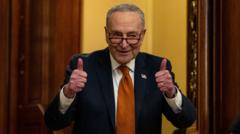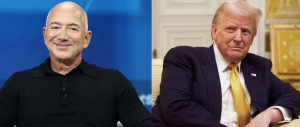The recent House Judiciary Committee report indicates that the Federal Trade Commission, led by Chair Lina Khan, may have acted politically motivated after Elon Musk acquired X, formerly Twitter. The report raises questions about the timing and extent of the FTC’s demands for documentation and accusations of harassment.
FTC's Actions Under Scrutiny Post-Musk's X Acquisition

FTC's Actions Under Scrutiny Post-Musk's X Acquisition
A House Judiciary Committee report questions the Federal Trade Commission's motives following Elon Musk's takeover of X, highlighting possible political bias.
A recent report from the House Judiciary Committee has drawn significant attention to the Federal Trade Commission's (FTC) actions following Elon Musk’s acquisition of X, previously known as Twitter. Published on Monday, the report asserts that FTC Chair Lina Khan quickly initiated a series of aggressive measures directed at Musk right after he took over the social media platform in October 2022.
Before Musk’s controversial acquisition, Twitter operated under a consent decree from the FTC, a type of formal agreement requiring the company to alter specific business practices. However, for three years, there had been minimal enforcement of that decree. The recent report claims a notable shift occurred when Khan ordered “an immediate vote” to enforce the decree mere days after Musk's takeover.
While Khan has repeatedly denied any connection between the timing of the vote and Musk’s acquisition, internal communications paint a different picture. An email from Khan's attorney advisor conveyed that “The urgency is due to Elon Musk’s purchase of the company this week,” supporting claims that Khan’s actions may have been fueled by political motivations.
The implications of the consent decree permitted the FTC to make substantial demands for documents from Twitter. In just the initial three months under Musk's leadership, the agency reportedly sent over a dozen letters requesting more than 350 distinct pieces of documentation, many of which directly pertained to Musk himself—extending well beyond the original terms of the consent decree.
The House Judiciary Committee's findings noted that the FTC struggled to provide a clear justification for such extensive demands. The report stated, “The only reasonable explanation, then, for requiring all communications remotely related to Musk would be as a tool for the FTC to harass Musk.”
Furthermore, the FTC initiated inquiries into journalists linked with X, demanding information from those covering matters associated with Big Tech and governmental overreach. Among the targeted journalists was Matt Taibbi, known for his work on the "Twitter Files" and reporting that uncovered potential abuses within significant tech firms and federal bodies. This action raised alarms about the FTC potentially overstepping its boundaries to silence proponents of free speech.
Linda Yaccarino, CEO of X, responded to the report, asserting, “The FTC Commissioners clearly targeted our company for political reasons. To say this is troubling is an understatement. We’ve worked in good faith for years with the FTC and believed they had been as well. We need answers immediately.”
These revelations highlight concerns about political maneuvering at high levels, sparking discussions on whether government entities are being weaponized for partisan objectives. The report's findings spotlight the intersection of politics, regulatory oversight, and freedom of speech, urging a closer examination of how these organizations function and the transparency essential for fostering public trust in institutions.




















